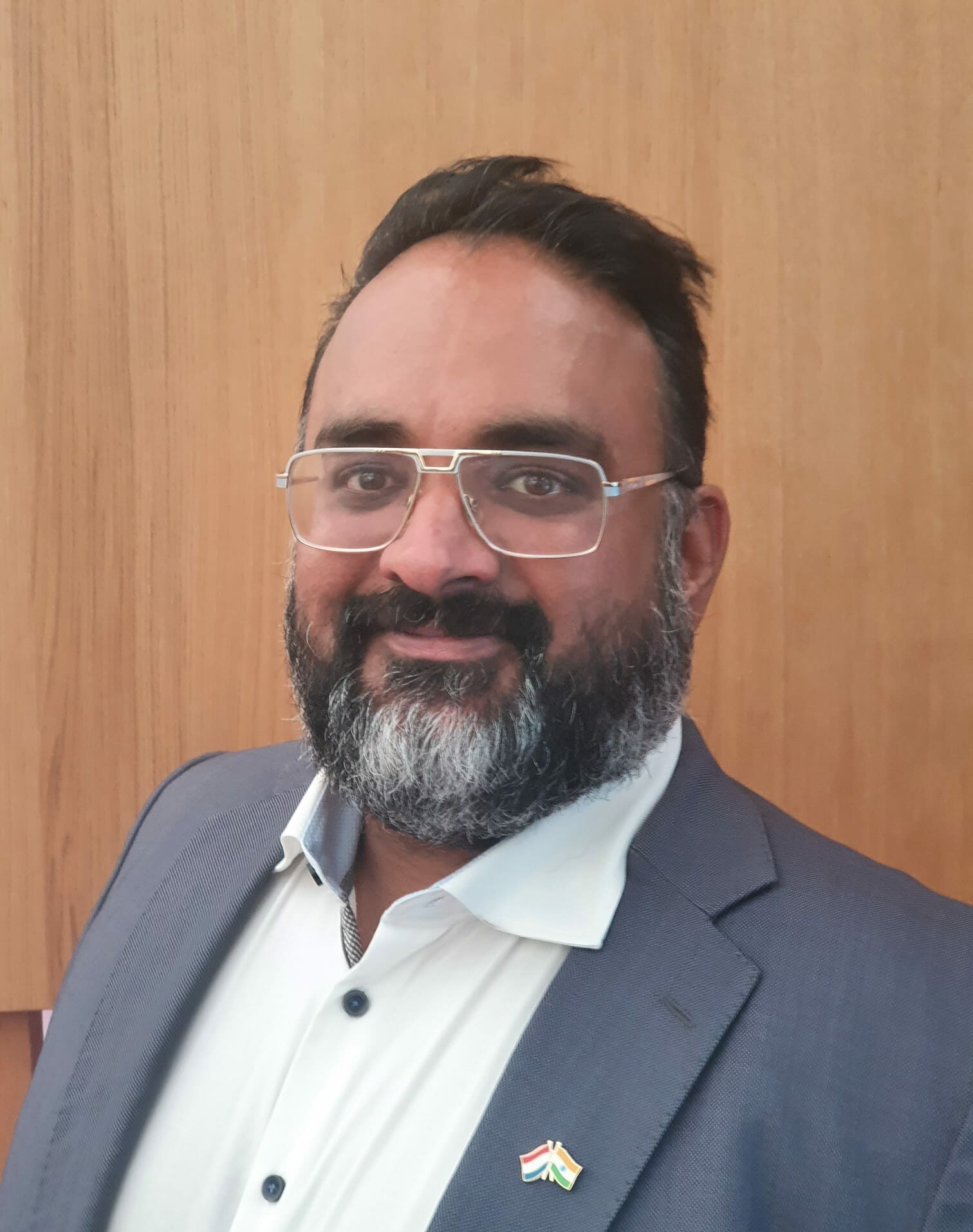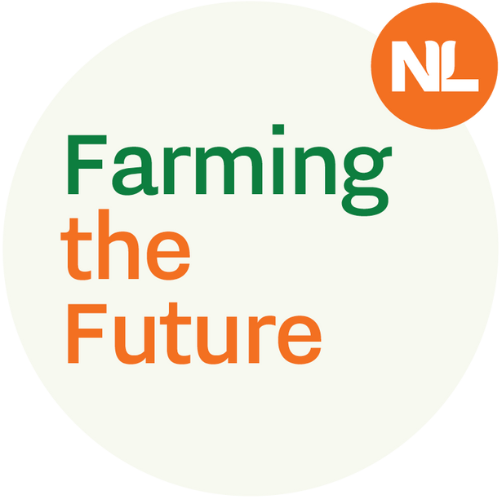The need for innovation and reform of current Indian agriculture, set against India’s large growing middle class, who demand safe, fresh, and locally grown fruits and vegetables, offers great opportunities for the Dutch horticultural cluster. Add to this the huge foreign investment in India in agri-food technology, and the sustainability ambitions of the Indian government. Then it quickly becomes clear that India is the country for sustainable reciprocal cooperation with Dutch (horticultural) knowledge and technology providers. That is the opinion of India expert Desh Ramnath, working as Director India for Dutch Greenhouse Delta. He describes India’s development, and market opportunities and talks about the multi-year public-private partnership ‘PIB NLHortiRoad2India,’ which he started last year with InnovationQuarter, Rotterdam Partners, the Dutch government, and 9 Dutch innovative companies.
Agriculture and horticulture sector in India
India is the world’s second-largest food producer after leader China. About half of India’s people work in agriculture, representing as many as 600 million Indians. Yet the sector’s share of national GDP is small at 19%. ‘Agriculture in India has several major challenges’ explains Ramnath; ‘It accounts for much of the burning of bio-waste at the change of season; it causes a lot of deforestation and it uses more than 70% of freshwater, the effects of which include, on the one hand, a lot of water shortages and, on the other hand, a lot of flooding due to soil erosion. The increasing air pollution cannot be met by the loss of trees. Indian farmers are among the poorest people in India. Agriculture is not profitable and children do not want to take over their parents’ businesses, therefore. Almost all of India is cultivated in open fields; less than one percent is protected from the weather by shelters (poly houses).’
‘In addition to this large group of Indian farmers, India consists of a growing middle class, of young people who have often studied abroad. Some 70% of the population is under the age of 45, educated, and has a different notion of food. They demand safe, fresh, and locally grown fruits and vegetables, without pesticides, because they know that in the agri-sector in India, there are too many pesticides in food and people are getting sick from them. So the production and consumption of fresh, healthy, and affordable food combined with an accessible and healthy lifestyle are one of the most important pillars for India’s future. All these points to a need for innovation and reform in India’s horticulture sector. Added to this is the growing demand for sustainably grown food from India from surrounding countries. The UAE has indicated that they want to import 70% of their food from India. Singapore, Thailand, Malaysia, and countries in Southeast Asia, with whom there are many trade agreements, will also be importing more food from India.’
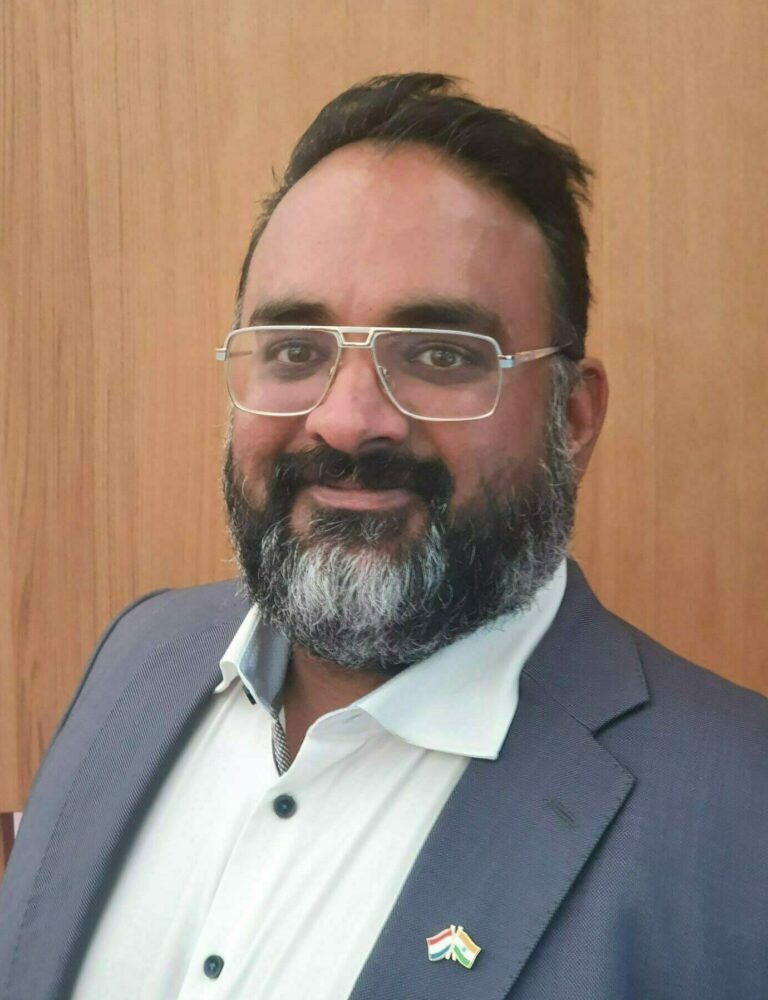
India’s ambitions concerning sustainability
With India’s huge annual population growth, India’s food demand is increasing. ‘The government knows that continuing to produce food in a current way will be disastrous, so the urgency is high to do this differently,’ Ramnath said.
India’s economy is growing at lightning speed at more than 7% per year. India performs best among all G20 countries. There is a turnaround and focus on sustainability from the Indian government. It is not a coincidence that India holds the presidency of the G20 this year, where water, health, food, and sustainability are the central themes. India wants to become a forerunner in the field of sustainability. The country is modernizing by forging partnerships with Western governments, bringing companies with technological know-how in their wake. Conversely, India has a large affordable highly skilled labor market and the largest IT sector that can contribute to innovation acceleration. Consequently, the country is inundated with trade missions. Also from the Netherlands, which is among the top-five largest investors in India. (Source: De Groene Amsterdammer).
Doing business in India
With a total population of more than 1.4 billion, India is the world’s largest democracy, where participation is seen as a great good. The country is a democratic republic, divided into 29 states and 7 territories. Ramnath: “India, therefore, has state and country politics, which causes long processes. India has a real business culture with high ambitions. The people are committed and value trust when doing business. The government facilitates trade but is never the customer. Despite the bureaucracy, you can do business in India just as easily as in the Netherlands, when having access to the right network. We are jointly building that network within DGD in collaboration with other players in the agri sector and the Dutch government, which also makes business easier for the Dutch horticultural sector.’’
Favorable investment climate
‘There is an investment climate in India, which provides opportunities for innovation in food production,’ Ramnath observes. ‘The large and wealthy parties in India are betting on food, because of sustainability and great economic opportunities. Capital is easy to find in India, but investors will always look very critically at the expected ROI. Traditionally, by definition, investors have not viewed food production in India as a profitable industry. Indian agriculture’s income comes from government subsidies. Last year, the tide turned and there was a strong investment in agri-food technology in India. For example, by 2022, about 8 billion has been invested in ag-tech start-ups. In particular, investment companies from abroad are focusing on India, such as the American company Sequoia Capital, which has offices in India, or the FMO from the Netherlands.
Retail sector
“We also see many retailers entering the market. They want to differentiate themselves in sustainability, such as India’s largest online supermarket Big Basket, part of TATA Group. Big Basket has taken the lead in pushing for sustainability in e-commerce in India. The platform is the first brand in India to deliver fresh fruits and vegetables to homes without packaging. In addition to the new packaging-free delivery of fruits and vegetables, Big Basket has also led the way with several other eco-friendly initiatives. For example, the company installed 1.4 MW of solar power plants, delivered groceries using electric vehicles, and built rainwater harvesting systems that save up to 390,000 liters of water annually. ‘India is at the forefront of IT and automation. To illustrate; Amazon’s largest office is being built in Bangalore and Philips Health has its robotics division in India.’
Hospitality sector
‘India has many domestic and foreign tourists and an increasing number of business tourists. Hotels in India also play an important role in food consumption. The hotels in India are huge and offer not only a place to stay, but also a wedding venue, restaurants, and clubs. They have top restaurants and healthy food is used by hotels as a marketing tool. For example, the Roseate Hotels & Resorts recently introduced India’s 1st Indoor Hydroponics installation in a hotel. With this, they want to express that sustainable growing contributes to purity and health. They want to show that their guests can enjoy completely chemical and pesticide-free top-quality food. Restaurant chains are also important parties for Dutch horticulture. In large food chains standardization and branding plays a big role. They want their sandwich and the tomato in that sandwich to look and taste the same everywhere. Dutch technology and knowledge help to significantly improve the uniformity of food.’
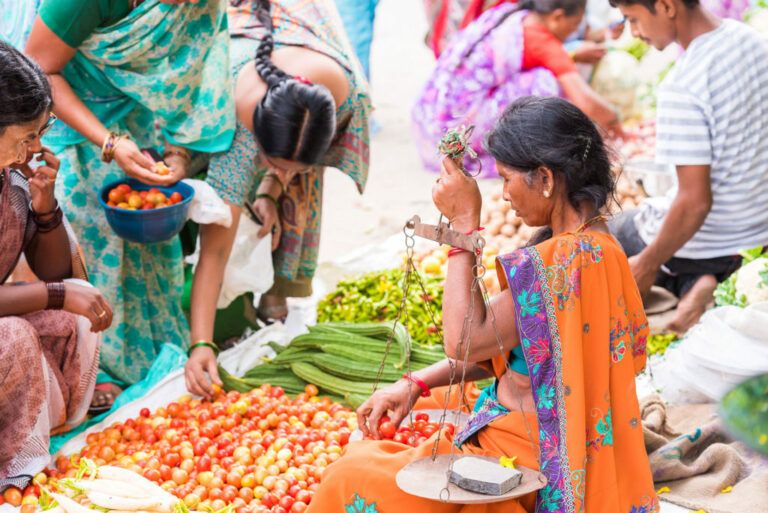
Field of competition
Of course, the Netherlands is not the only country showing interest in cooperating with India in food production. ‘For years a lot of technology has been imported from Israel. The Israeli government provides large innovation funds for this, which are doubled by the Indian government. This makes it attractive for Israeli companies to invest in India. Israel also positions itself as equal to India in terms of similar culture, climate, and economic conditions.
‘But the market demand in India is big enough for the Netherlands to gain a position, among other countries, such as Israel and Australia,’ Ramnath believes. ‘In addition, the Netherlands has a unique eco-system, which can offer total solutions for growing in any climate.’ According to Ramnath, however, the challenge lies with the mindset of the Netherlands about India. ”Many Dutch people still see India as a developing country, but the richest Asians now come from India, the CEO of Google comes from India, and of the top 100 largest companies, most have an Indian at the helm. The country has the future. We already see Indians doing a lot to strengthen trade relations with Europe and with the Netherlands. If the Dutch cooperate with India in a structured way, we will become part of the revolution in India. It is a loyal country, so in the future, we as the Netherlands will reap the benefits.”
From regional to metropolitan strategy
In October 2022, the covenant for the multi-year public-private partnership PIB NLHortiRoad2India was signed by 9 Dutch organizations and the Dutch government. This collaboration aims to position the Dutch horticultural sector as a partner for India to meet India’s growing demand for fresh, safe, and nutritious fruits and vegetables. Shortly thereafter, the cluster of Dutch turnkey suppliers and specialized companies headed to the Indian states of Karnataka and Maharashtra. Here they saw that food production in India is changing and that Dutch knowledge and integrated solutions can support India in growing safe and healthy fruits and vegetables sustainably. Aadesh Shah, Development Engineer from Viscon Group was one of the participants in the trade mission: ‘This mission offered us a very good insight into the opportunities in the Indian market. The coordinating organizations did a great job of connecting us with the right partners. Our visit has already led to the development of initial proposals for projects in India.’
The retail sector and Heads of State in India confirmed that there is a large market demand and that the Dutch cluster is distinctive with its holistic and structured approach and integrated solutions. Ramnath on the cluster’s approach: ’We initially focused on the States, which were wealthy, where there was agriculture and where the climatic conditions are interesting. However, the road network and cold transport and storage in India are poor, so post-harvest logistics are a big problem. Because of poor cold logistics, climate, poor workplace hygiene, and poor road network, 30% to 80% of production is lost. The mission made us realize that we had to change our strategy. We now focus on metropoles, where a large growing middle class in need of safe, fresh, and locally grown food, lives. In other words, we changed from a regional strategy to a metropolitan strategy. We focus on big cities like Bangalore, Hyderabad, Mumbai, Kochi, Delhi, and Lucknow with Universities and educated wealthy young people living clustered together.’
Cross-sectoral area development
‘It’s not about food, it’s about sustainable area development,’ Ramnath points out. ‘Our goal is to help countries sustainably develop cities so that people can live and work healthier. The sectors in which the Netherlands is strong; logistics, biotech, water, and food, are precisely the sectors, with which we can make a real impact on achieving the SDGs. Within the PIBs we seek cooperation with parties across sectors to achieve more in the field of sustainability.’
‘If tomatoes, eggplants, peppers, chilies, and leafy greens were grown in a closed cultivation environment instead of in open fields, as currently happens in India, there would already be much fewer emissions. Fewer trees would be cut down, less water would be used, less material would be burned, and biodiversity would increase tremendously. Urban planning in India offers opportunities to link sectors together, so that you can e.g. use CO2 from one industry to grow crops in the greenhouse, making the impact enormous. However, this requires huge investments. Energy causes a lot of pollution, which is why the government is investing in biomass power plants. If we build greenhouses next to biomass plants, CO2, bioethanol, and clean compost obtained from the waste can be used in the greenhouse. That is off-grid and sustainable.’
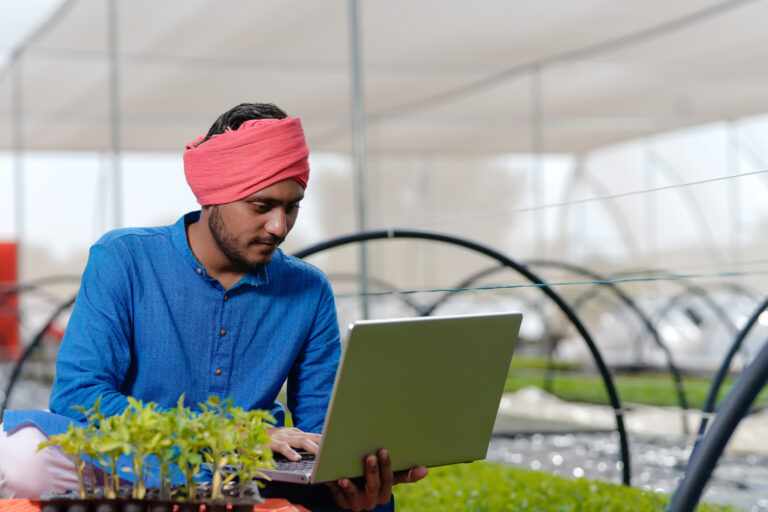
Public-private partnership HortiRoad2India pays off
Dutch Greenhouse Delta initiated this and two other PIBs; one focused on the Gulf region and one focused on China. ‘DGD has a start-up mindset of discovery and learning and through constant lobbying with collaboration partners, governments, and cluster members, we can continue these PIBs very successfully’ explains Ramnath. ‘Our relationships with the Agriculture Council in India, and with the Netherlands Enterprise Agency are very productive. This helps us to build a large network and get to the table with large business conglomerates, such as India’s Reliance and the Tata Group. We are also in close contact with educational and training organizations in India, such as The Centre of Excellence in Baramati and AgroTie in Bangalore, where Dutch companies provide training. We can also count the Agricultural University in Karnataka among our network. They conduct research into improving the food chain. In addition, the cluster is in contact with some pioneers in the field of horticultural cultivation in India.’
‘Some of our PIB partners have been active in India for some time, and for others, India is still virgin territory. Some PIB-India partners have contributed to Simply Fresh and forerunner Nature’s Miracle. Within PIB India, we are currently exploring opportunities to provide Dutch knowledge and technology to NutriFresh. They grow greenhouse vegetables and leafy greens for retail, and retail demand for their sustainably grown food is growing rapidly. NutriFresh wants to work with Dutch companies to scale up by 40 acres so that they can continue to supply retail sustainably. Staff education and training are essential here because staff must be able to deal with the technology to make it a success. Knowledge transfer is therefore naturally part of every business case.’
At the time of writing, the PIB HortiRoad2India is formed by 9 ambitious Dutch organizations, which together provide an almost complete eco-system. Among them is also an industry-first party; Broekman Logistics. They provide supply chain solutions worldwide, including in India. ‘However, we would like to expand the cluster even more with Dutch cultivation companies, with cultivation knowledge and knowledge of technology, who have ambitions in India in due course,’ Ramnath explains. ‘Also, a bio-mass power plant would be more than welcome. The development of biomass plants by Dutch parties is already greatly stimulated by licenses and by the government organization NL Works. A packaging party or spraying party, offering solutions for minimizing post-harvest product losses, would also be a good addition to the cluster.’
Do you like to know more about Dutch Greenhouse Delta in India or the PIB HortiRoad2India?
Reach out to Desh Ramath

